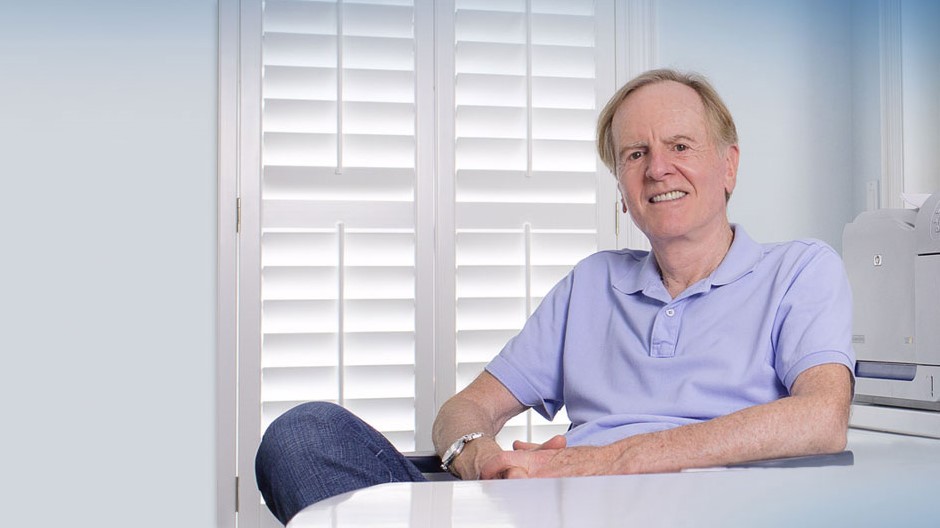John Sculley: 2018 was the year of the platform
Former Apple CEO breaks down this year’s trends and shares his predictions for 2019.

As 2018 draws to a close, now is the time to look back at the advancements made in the world of technology this year and wonder what 2019 will hold.
TechRadar Pro sat down with former Apple CEO and current chairman of RXAdvance, John Sculley to get his take on the biggest trends of 2018 as well as his predictions for next year.
In your opinion what technology trends or launches have had the biggest impact this year?
Technology trends having biggest impact this year are ‘platforms,’ particularly smart transaction automation platforms using machine learning. These platforms are quietly eliminating huge inefficiencies in many industries, such as fin-tech, health-tech, supply chain, many asset light businesses, etc. It’s the business architecture that will be foundational in every mainstream industry.
This is a quiet revolution because it’s not as visible to the public because it’s happening in the back office. There are 6.2 million open higher skilled jobs in the US private sector. If we can’t find skilled workers to fill these jobs, then expect to see the platform revolution take over more skilled work via smart process automation utilizing cloud platforms and machine learning.

Have any new businesses or products particularly caught your attention this year? If so what problems are they aiming to solve?
WeWork. They have reinvented the workplace for millennials particularly in large cities. I have visited with Adam Newman WeWork founder and CEO. This is an incredibly scalable business. Mobile work tools like Slack and BlueJeans mean productivity is increasingly an informal team experience. WeWork creates great work experience whether you are there alone working remotely or physically needing a conference space.
Do you think that data protection and data privacy will play a larger role in the technology industry now that GDPR has gone into effect?
Absolutely. GDPR was controversial when it was deployed in the EU on May 25, 2018. Now many us accept its importance and actually think we need to go even further. There have been so many unintended outcomes from social media. Some of them are destroying our democracy.

How are you seeing businesses using data to improve the lives of their customers?
Customers are really depending on the comments, referrals, and advice of other customers more and more. Combine this with accurate data how individuals, shop, likes and dislikes, tracking their behavior and interests means better consumer purchasing satisfaction. There is a trade off of giving up some privacy for better customer satisfaction. Millennials like, older generations are more skeptical.
What advancements do you think the healthcare industry will make when it comes to utilising patient data for more effective treatment?
I have been co-founding health-tech companies, investing in healthcare, mentoring health-tech founders now for 12 years. That’s longer than the decade I spent at Apple as CEO.
The biggest change in healthcare is VBC (Value Based Care). CMS launched a decade long policy initiative back in 2014 to shift the $3.5 trillion US healthcare industry from ‘fee for service’ regardless of patient outcomes to an incentives and penalties reimbursement model where health plans can make more money if they deliver better patient outcomes while risking big financial penalties if chronic care patients are readmitted to the hospital within 30 days of discharge.
By 2024 I expect the US health system will be shifting from an institutional hierarchy vertically organized into unconnected silos to a horizontal structure with everything organized around making consumers the center of focus. Platforms, smart transactional automation, highly integrated health data going horizontally end-to-end across the health diagnostic to health treatment delivery will become the norm by the mid-2020s. Look back to how Intel and Microsoft were the primary forces that changed the computer industry in a similar way 30 years ago.
What technologies are you most excited about in 2019?
The single most world changing health-tech technology in 2019 is from a sensor technology company in London called Zedsen. It's the first time that a non-invasive glucose meter sensor system has equivalent accuracy to a painful finger prick blood test. This is an alternative to the six times a day blood glucose test that diabetics should take every day of their life.
There are 440 million diabetics today which will be rising to 600 million. In addition, there are hundreds of millions of pre-diabetics who may be at risk of getting diabetes because they may be overweight and/or not eating properly. A future non-invasive continuous glucose monitor built into a wearable digital watch could alert consumers when their blood glucose is above a safe range.

How do you think your old company Apple can continue to stay at the top of its game in 2019?
The world loves Apple and holds it to a higher standard than other companies because Steve Jobs was passionate about innovations that were both magical and that embraced a Noble Cause to change the world. Apple's loyal fans will be watching in 2019 for signs that Apple remains passionate about these foundational principles.
John Sculley is Chairman at RXAdvance
- Interested in health-tech? We've also highlighted the best medical alert systems
Sign up to the TechRadar Pro newsletter to get all the top news, opinion, features and guidance your business needs to succeed!
After working with the TechRadar Pro team for the last several years, Anthony is now the security and networking editor at Tom’s Guide where he covers everything from data breaches and ransomware gangs to the best way to cover your whole home or business with Wi-Fi. When not writing, you can find him tinkering with PCs and game consoles, managing cables and upgrading his smart home.
